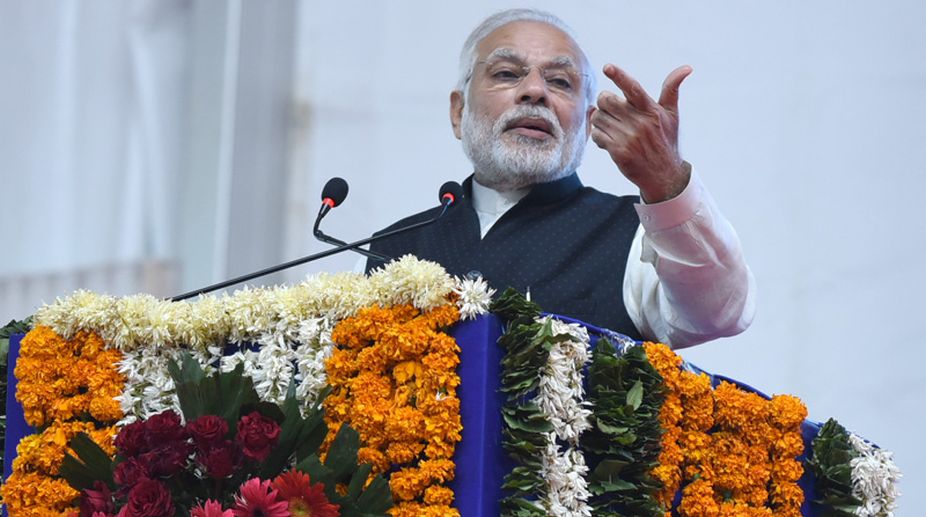Lok Sabha Election 2024, Phase 1: Voting on 102 seats underway
In the first phase of Lok Sabha elections 2024, as many as 102 constituencies spanning across 21 states and Union Territories will elect their new MPs.

PM Narendra Modi (PHOTO: AFP)
On the eve of Mahatma Gandhi's death anniversary Prime Minister Narendra Modi on Sunday said government is making efforts to eliminate leprosy as a tribute to the vision of the father of the nation.
In a message on the occasion of anti-leprosy day, Modi said we have to work together for socio-economic uplift of the cured persons and for their contribution in nation-building.
He said we have to strive hard to ensure that these citizens of our country lead a life with dignity that Mahatma Gandhi dreamt of.
Advertisement
The PM recalled that Mahatma Gandhi had an enduring concern for people afflicted with leprosy. His vision was not just to treat them, but also to mainstream them into our society, Modi added.
Prime Minister said the effort to eliminate leprosy from this country under the National Leprosy Eradication Programme is a tribute to Mahatma Gandhi's vision.
He recalled that this programme was launched way back in 1955 and noted that the goal of leprosy elimination as a public health problem, prevalence rate of less than 1 case per 10,000 population at national level was achieved in 2005.
He said that although the case detection rate thereafter has marginally decreased, visible deformity at the time of diagnosis has increased.
"As a country, we have to leave no stone unturned to not just reach the last mile but also to work together to eliminate the social stigma attached with this disease," he added.
Prime Minister mentioned that a three-pronged strategy for early detection of leprosy cases in the community was introduced in 2016 under the National Health Mission, especially in the hard-to-reach areas.
A special Leprosy Case Detection Campaign was carried out in 2016. As a result, more than 32,000 cases were confirmed and were put on treatment. In addition, persons who are in close contact with the patients were also given medicine to reduce the chances of occurrence of the disease in them.
Advertisement